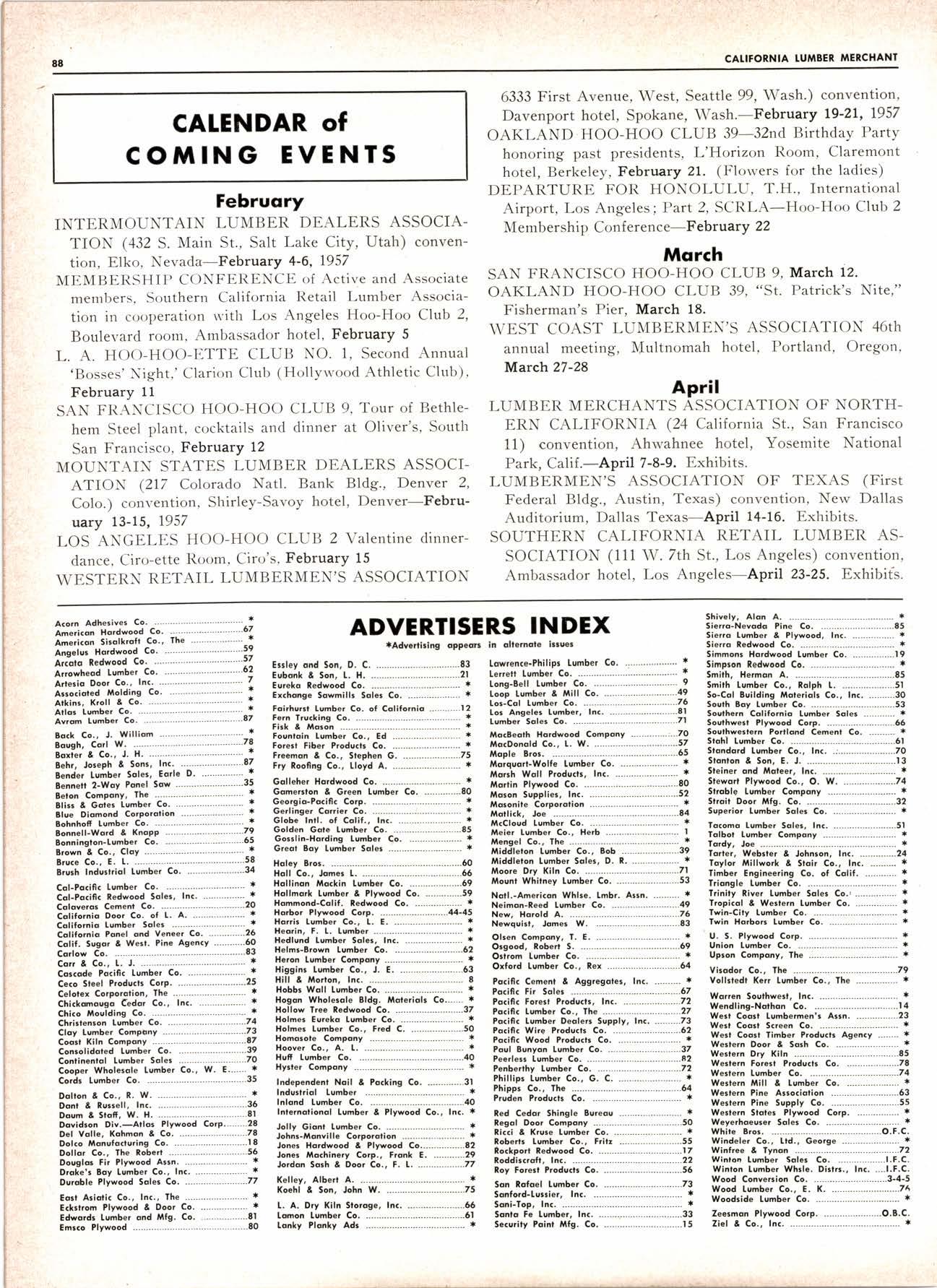
1 minute read
Servlce ls Our Stoe& ln Trade
Expert Hondling ond Drying of Your Lumber-Fnst ServiceNE\n/ ond MODERN FACIL|IIES-INCREASED CAPACITY fhese qre but cr few of the mony feotures
Ofrered By
L. A. DRY KIIN & STORAGE, INC.
4261 Sheilo St., Los Angeles, Colif.
Dee Essley, Pres. ANgelus 3-6273
Hsrdwood Plywood Progress Told
Reports of progress on the technical front brought welcome news to those in atttendance at the recent 12th annual meeting of the Hardwood Plywood Institute. Dr. John A. Hall, director of the U. S. Forest Products Laboratory, Madison, Wis., discussed the advantages of veneer cutting
For
THE
Morsholl Edwords, Supt.
as a method of converting logs into useful products, and the growing complexity of the plywood industry brought on by technical advances.
"From parent trees that have the type of rvavy grain or figure we want on the face of our plywood, we believe that we can reproduce whole forests of such timber. Forest genetics may also hold the key to faster growing of logs," Dr. Hall said.
In addition, chemists are studying the adhesives used to make plywood; specialists are working on treatment of wood with preservatirres, fire retardants, and stabilizing resins; engineers are dealing with strength and design problems; and plant physiologists are doing research on the fine structure of wood.
HPI members also lvere apprised of the success of the Institute's quality control labeling program, new facilities designed to improve a.nd expand services to members, and a panel composed of lee.ding glue manufacturers discussed problems of interest to the plywood industry.
Discussions, led by Institute Manager Charles E. Close, centered around the forthcoming commercial standard for hardwood plywood, now labeled Tentative Standard 5280 and soon to be promulgated as CS 35-56. Delegates considered implementation of the standard at the use level and problems of grademarking. Also recent studies of plywood manufacturing techniques by the U. S. Forest Products Laboratory, and the role that tree farming for veneer logs can play in the "soil bank" plan.
In the trade promotion section of the meeting, led by Richard D. Behm, trade promotion director, plans were laid for the 1957 program in four afternoon clinics. The group discussions considered the construction, furniture and industrial markets, and methods of distribution.










